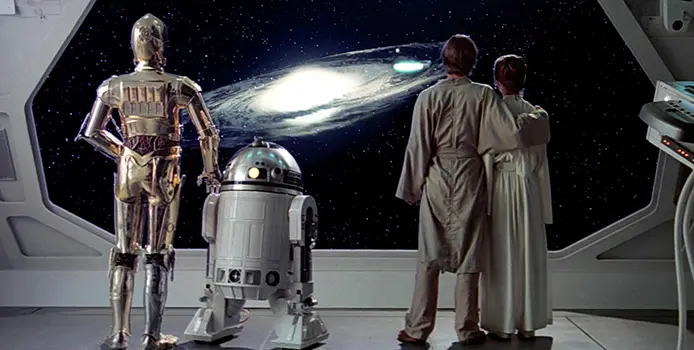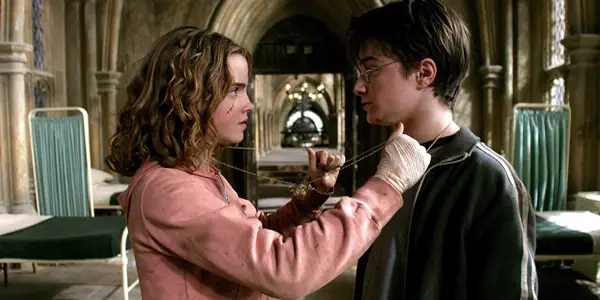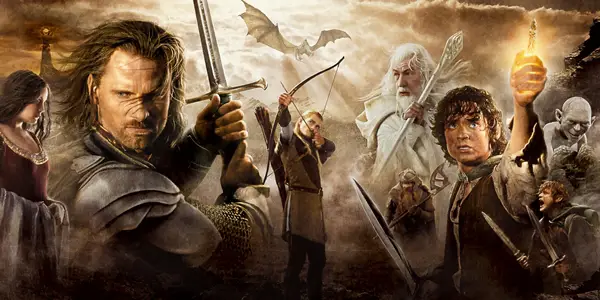Second (Or Third) Time Around: 10 Superior Sequels

Graduate of the University of Portsmouth with a first class…
With 2015’s blockbuster season kicking off with two box office smashing sequels in Fast & Furious 7 and The Avengers: Age of Ultron, the film industry now, more than ever, lies at the behest of the big-budget follow-up. Star Wars: The Force Awakens, Spectre, Terminator: Genisys, Magic Mike XXL, Mission: Impossible – Rogue Nation, Jurassic World – like them or loathe them, you can’t escape the plethora of cinematic revisits arriving this year, and it would be a brave person who stands up and claims they aren’t excited about at least half of them.
The sequel is quintessential to film culture. Whether their announcements spark groans of derision and howls of unoriginality, or geek-fueled excitement and finger-tapping impatience, they are here to stay – and they don’t all have to be bad. In fact, there is plenty to suggest that a sequel can take everything that is good about its predecessors and improve upon it. Looking at the following ten films especially, it may not be as outlandish an idea as it may seem.
10. Harry Potter and the Prisoner of Azkaban

The Harry Potter film series set its early stall as enjoyable family fare, providing a respectable level of entertainment whilst fashioning the tropes and characteristics now so instantly identifiable to film-goers the world over. Despite being solid adaptations, however, there is plenty to turn the the sterner of us away from The Philosopher’s Stone and The Chamber of Secrets. The early films – quite understandably – pander to a much younger audience, touching on some of the darker themes yet spreading a little too much saccharine on top in the process.
This, combined with a young lead trio yet to truly discover their acting chops, can make the experience of watching the first two films a little disengaging for the older viewer. The Prisoner of Azkaban proves to be the turning point. With the characters and actors now firmly in adolescence, the naturally darker tone of J.K. Rowling’s third novel flourishes amid more hard-hitting and less jovial narrative threads.
With another five movies to follow, Azkaban proved an excellent turning point for the series, thrusting it from merely harmless fantasy to a dark tale of redemption, sacrifice, and heroism.
9. The Bourne Ultimatum

Admittedly, it’s a tight call between Ultimatum and its direct predecessor, The Bourne Supremacy, as to which reigns supreme in the series. Whichever side of the debate you fall on, however, the evolution of the Bourne films (prior to Jeremy Renner) is nonetheless undeniable, and an unmistakable catalyst for the success of a grittier Daniel Craig-helmed James Bond in the years to follow.
The original, The Bourne Identity, established a plethora of fast-paced, slickly-edited, and intense action with enough character, plot, and charm to elevate it above merely an espionage-based popcorn sifter. Through Supremacy and into Ultimatum, however, the story expertly plunges further into the emotional and psychological depths of Matt Damon’s definitive amnesiac super agent, developing into one of the most intellectual, adrenaline-fueled genre trilogies of the modern era.
Ultimatum, ironically, proves its own supremacy with the hardest-hitting fight sequences and a desperate urgency that climaxes expertly with the culmination of Treadstone’s behaviour modification secrets, a wonderful tête-à-tête between Damon and the great Albert Finney.
8. Spider-Man 2

The first of three superhero entries into this list. As is often the case with comic book sequels, freed of the obligation to establish an origin story, Spider-Man 2 instead thrives on focusing on the nuanced and complex rigours of life behind a mask, and the ramifications that it has on the lives of the hero and all those around him. With director Sam Raimi growing in confidence and trusted with a bigger budget, Spider-Man 2 succeeds in both ramping up the action and exploring the finer subtleties of the web-slinger’s troubled character.
Throw in the great Alfred Molina as definitive cinematic Spidey big bad Doc Ock, helming a wonderfully subtle and nuanced character arc, and you have a Spider-Man entry sadly untroubled in pole position by any iteration produced since. Balanced, complex, but never shirking in action either.
Where Spider-Man 2 succeeded, Spider-Man 3 and The Amazing Spider-Man series failed, muddling the narrative focus with an abundance of characters and events. Raimi‘s second keeps things simple and laser-focused on character development, wonderfully setting up future installments that would regrettably fail to build upon such overwhelming positivity.
7. X2: X-Men United

In an era with superhero films still yet to really find their footing in popular culture, the Spider-Man and X-Men sequels opened up many an eye as to the possibilities lingering within the plethora of printed comic book action. In the early years of the millennium, comics within the world of film evolved, tackling more serious themes and distancing itself from the hodgepodge of colour and campness that had endured prior. The regular moviegoer stood up and took notice.
The original X-Men did as all respectable opening superhero chapters do: efficiently introducing us to a host of new characters, and setting up the conflict within. Whilst enjoyable (if somewhat dated), X-Men nonetheless does the bare minimum. X2, however, really gets to the heart of what the X-Men stories are all about – prejudice, isolation, and political agenda. The ‘common enemy’ vibe (provided by a stellar performance from Brian Cox as William Styker) running throughout the film frames a level of post 9/11 social commentary unheard of in superhero cinema to that point.
Indeed it can be argued that, Tim Burton’s Batman aside, X2 proved to be the first blockbuster comic book film to avoid needless pandering to its younger audience. A generation of graphic novel-based successes would follow its lead.
6. The Lord of the Rings: The Return of the King

One aspect of critique the concluding part of a trilogy will always have over its predecessors is resolution. Typically, an opening chapter will have some kind of soft resolution (lest sequels not be forthcoming), a middle chapter will finish open-ended with our characters at some form of cross-road or peril, but a trilogy-capper will be charged fervently with providing answers.
Therein lies the tricky part, yet fortunately this is what The Return of the King excels in. In fact, if you succumb to common clichéd commentary, ROTK has too much resolution – ‘the film that never ends’, they call it. Yet each ‘individual ending’, as it were, serves a vital purpose in bringing this epic, multifaceted, and ensemble trilogy to a respectable close.
With one of the finest climactic battles scenes ever projected onto silverscreen, The Return of the King does what all great sequels should do in building upon and improving the excellent work of the original, whilst presenting the culmination of each character’s arc in a fashion befitting the long journey they have taken alongside the audience.
5. The Godfather Part II

A truly great sequel to a truly great organised crime epic, The Godfather Part II surpasses its predecessor in sheer scale in its depiction of the rise and fall of the Corleone crime family. With some stellar writing and career-defining performances from stars Al Pacino and Robert De Niro, it can certainly be argued that this is film history’s first truly impressive follow-up.
Contrasting the rise of the young Vito (De Niro) with the dramatic fall of his son Michael (Pacino) across two separate timelines, the second Godfather film helped shape and define the merits of non-sequential storytelling in an era of typically by-the-numbers scripting. With the idea of the sequel still years away from being a Hollywood mainstay, this film laid down an impressive and scarcely imitable groundwork for continuing and expanding a story beyond its already height-scaling origins.
The two are rightly considered to be indicative of the peak of American cinema, and the culmination of the perfection of the art of film. With that in mind, the relative mediocrity of the third entry becomes all the more understandable.
4. The Dark Knight

The greatest comic book sequel of all time? Whilst there may be some quarters that do not agree, (particularly in the wake of a bizarre swarm of anti-Christopher Nolan pot shots in the last few years), the sheer iconography and enduring imagery of the British director’s most-acclaimed film make The Dark Knight’s resolve difficult to ignore. In this writer’s opinion, Batman’s darkest chapter makes for one of the most impressive follow-ups in cinematic history, superhero or no.
Nolan‘s unique grasp of the darker elements of Caped Crusader lore have spawned many an imitation. A whole shared universe of bleak DC adaptations, in fact. Yet this new-found obsession with the ‘gritty reboot’ and the mistakes made therein served only to underline Nolan‘s meticulous balancing of the light and dark elements of his Batman trilogy. They aren’t unnecessarily dreary, a la Man of Steel, and they certainly aren’t as outlandish and ridiculous as their much maligned Joel Schumacher helmed predecessors. Balance is key.
Visually striking, but suitably grim in reflection of the subject matter, Nolan‘s films struck a difficult chord in perfecting the grounded superhero picture, the pinnacle of which arrives in The Dark Knight and in particular with the late Heath Ledger’s brutally unhinged take on The Joker.
3. Terminator 2: Judgment Day

The original Terminator film was a perfect representation of the type of action driven film that defined the 1980’s. In the cold light of day, though, it essentially amounts merely to an overpowered pursuer chasing after a damsel in distress and her protector. With only a vague sci-fi concept loosely holding the plot together, The Terminator is a fun but ultimately shallow journey. Judgment Day, however, ramped up the emotional depth without compromising an ounce of the bullets-and-blood adrenaline, all whilst providing a greater context to the overriding story of an impending war against the machines.
The redemption (of sorts, it is of course a completely different machine) of Arnie’s T-800 proves a brave and ultimately successful move. The presence of a ‘good’ Terminator allows for the exploration of age-old discussions of humanity, with Sarah and John Connor’s adoption of the machine as somewhat of a surrogate father figure being one of the most heart-fueled aspects of the franchise. On top of which, the presence of a toughened and multi-layered Sarah Connor opened up a whole new level of depth. No longer simply a damsel in distress, Linda Hamilton’s character returned as one of the strongest and most resilient lead characters in recent memory, a figurehead to T2’s increased narrative integrity.
The T-1000 liquid Terminator too? Truly an astonishing achievement in early 90’s visual effects.
2. The Empire Strikes Back

In 1977, Star Wars introduced the world to the first notable space opera box office smash, a unique and diverse world of aliens, intergalactic dogfights, space wizards, and laser swords. Whilst A New Hope remains a magical film in its own right, its somewhat clichéd and templated storytelling methods could have seen it slip into obscurity. That is, without the presence of The Empire Strikes Back – its darker, more complex, and more emotionally-driven bigger brother.
Much of the mythology of what makes Star Wars what it is is reinforced, if not established entirely, in Empire. Force ghosts, intense lightsaber duels, Yoda, Vader’s character arc – all Star Wars mainstays, and all absent from the original film. Empire, quite simply, cemented the franchise in cinematic lore.
Thirty-five years later, The Empire Strikes Back remains the pinnacle of the Star Wars saga (even if hopes are high regarding J.J. Abrams’ upcoming The Force Awakens). Without doubt, it is solidified as the most quoted, homaged, and parodied film of all time, an unmistakable sign of the affection it holds even in modern-day culture. It is the glue that holds the trilogy together in spite of the weaker entries on either side.
1. Aliens

What else other than James Cameron’s much-acclaimed sequel to Ridley Scott’s Alien? A film that grabbed the claustrophobic, horror-centric premise of its original and turned it into an all guns-blazing action piece, and one of the finest in cinematic history to boot. From the slow burning suspense of Alien rose the progressively visceral Aliens; a spectacle of 1980’s grit and violence that saw lead actress Sigourney Weaver hit the finest notes in her ongoing feud with the Xenomorph race.
Rarely can a sequel subvert and redirect the core principles of its original to such a degree and succeed. The Alien/Aliens relationship is so unprecedented that entire genres separate them, yet only for the better. Alien is a much-loved film, but by refusing to simply offer up more of the same, Aliens instead developed the franchise far beyond the minimalistic roots of Scott‘s original. There was heftier narrative punch, greater spectacle, and most importantly of all, in Cameron‘s capable hands there was a respect and admiration for what had gone before that only helps to serve its much more grandiose scale and budget.
Indeed, Aliens proves so successful as a sequel that viewings of the original are enhanced merely by the existence of its world-expanding follow-up. A powerful achievement.
Conclusion
There is merit in sequels. For generations, we have loved storytelling (in whatever fashion) because it allows us the opportunity to engage with characters and plot threads of great depth, complexity, and intrigue. A sequel has the opportunity to build upon what we already know about these stories to present a much grander tale, to expand upon and further develop the characters to a point that makes the combined experience of all its parts much more fulfilling.
There are stinkers, sure. In fact, the idea of sequel is sadly all too primed and ready to be exploited by the money men to be nothing but a cheap rehash of what came before, developing nothing and seeking only to milk a franchise for all it is worth. It is a sad, but inherently unavoidable aspect of cinema. Money will always speak louder than integrity, but that is not to say the two cannot communicate in tandem.
A truly excellent sequel is an all-too rare thing, which makes the ten films mentioned prior all the more special and memorable. They surpassed the negative stigma, took what was great about the story and made it greater, and more importantly, refused to disappoint fans of their originals. They ended up being just excellent sequels, but excellent films in their own right.
What are your favourite sequels? Do you disagree with any of my entries? Sound off in the comments section below.
(top image The Empire Strikes Back (1980) – source: 20th Century Fox)
Does content like this matter to you?
Become a Member and support film journalism. Unlock access to all of Film Inquiry`s great articles. Join a community of like-minded readers who are passionate about cinema - get access to our private members Network, give back to independent filmmakers, and more.
Graduate of the University of Portsmouth with a first class honours degree in film studies. For the last few years I've been managing a cinema and sharing my opinion on films with anyone who will listen. Previously contributed to The London Film Review, The Cult Den, Screen Robot, and Movie Marker.













